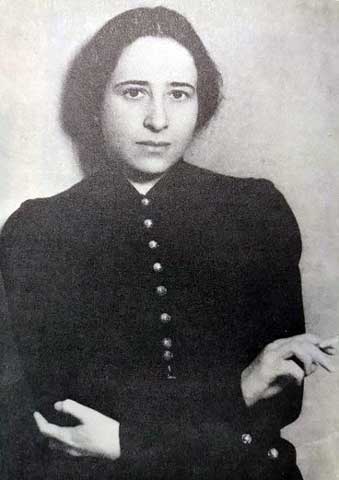In this article, we’re delving into the world of Hannah Arendt, a pivotal political thinker who gave profound insights on totalitarianism – a term referring to a political system where the state has absolute authority over every aspect of public and private life.
One of Hannah Arendt’s most influential works is “The Origins of Totalitarianism“. In this book, she explores how totalitarian regimes, like the Nazi regime in Germany and the Stalin regime in the Soviet Union, managed to grasp power.
Hannah Arendt believed that these regimes were founded on false worldviews, created to manipulate the masses. Through propaganda and fear, people were led to lose their grip on reality and accept this manipulated worldview.
Even though these ideas hail from mid-last century, they still have relevance to our current society. In the internet era we live in, false information – or ‘fake news’ – is easily and swiftly disseminated, and this can impact our understanding of reality. Arendt’s ideas remind us to always remain critical about the information we consume.
In today’s Belgian newspaper De Standaard newspaper, there’s an op-ed piece from Ian Buruma (historian and writer) which, among other things, states:
“Where Trump has had the most success, is also his most dangerous trick, and that is to make his own problems with the government appear as an attack on his followers. He has compared the charges against him to the persecutions in Nazi Germany and the Soviet Union under Stalin. When he was accused in June of a string of crimes, he said to his followers: ‘I’m not their real target. They’re after you – I’m just in their way.'”
As a female intellectual, Arendt also made a strong impact at a time when women were often excluded from academic and political discourse. She continues to inspire us today, as the fight for women’s rights continues in various parts of the world. Arendt’s perseverance and contributions to political theory underscore the importance of gender equality and diversity of voices in every societal debate.
We must remember that the horrors of the Holocaust and the Nazi regime do not only belong to the past, but also to the present and the future. They serve as a powerful reminder of the consequences of unbridled hate, prejudice, and discrimination. By understanding and learning from Arendt’s ideas, we can guard against the rise of such malevolent forces in our society.
Hannah Arendt’s legacy invites us to think critically about our world and to remain vigilant against the resurgence of totalitarianism, and thus, to safeguard the rights of every individual, regardless of gender.
More about Hannah Arendt
Hannah Arendt (1906-1975) was an influential German-American political thinker. Born into a Jewish family in Germany, Arendt fled to the United States in 1941 to escape the Nazi regime.
Arendt introduced the concept of ‘the banality of evil‘ during the trial of Adolf Eichmann, a key architect of the Holocaust. With this term, she meant to convey the idea that ordinary people, without malicious intentions, can partake in horrific crimes if they don’t critically think about their actions.
Arendt’s ideas and her role as a woman in the academic world of the 20th century continue to inspire many, particularly in the fight for women’s rights and against totalitarianism and discrimination. She passed away in 1975, but her influence on political theory and her relevant insights for our contemporary society live on.







